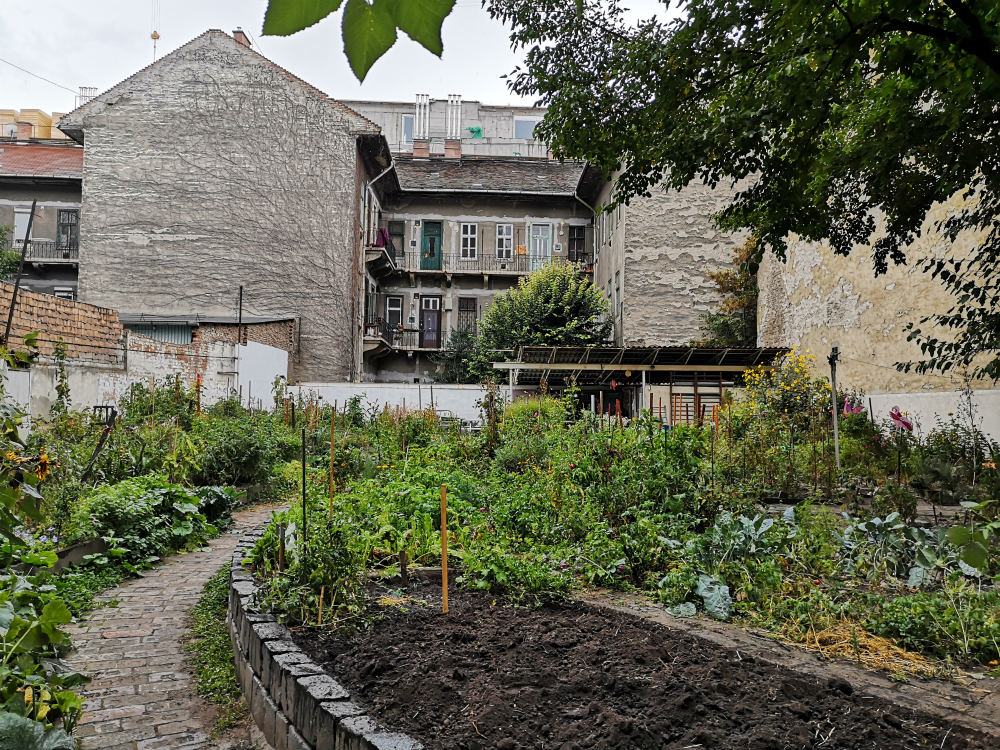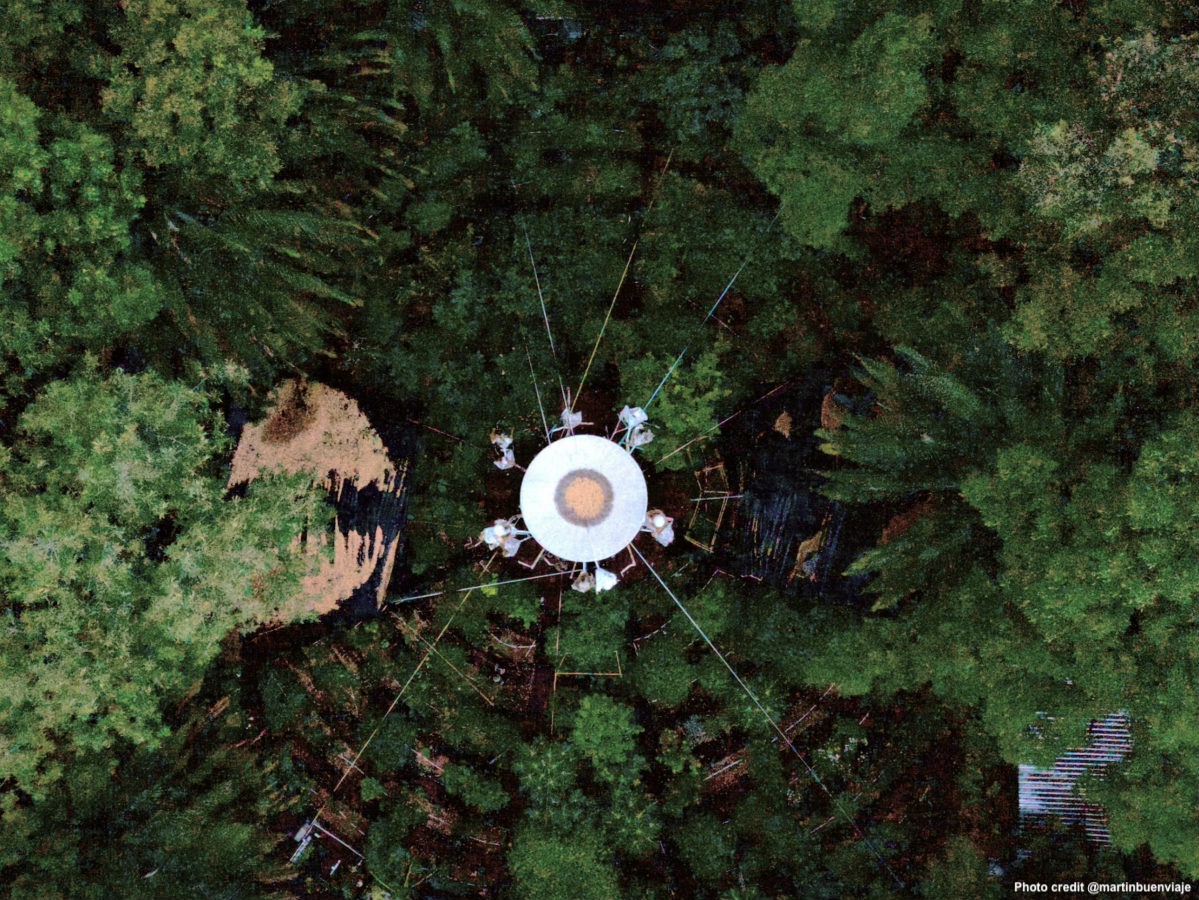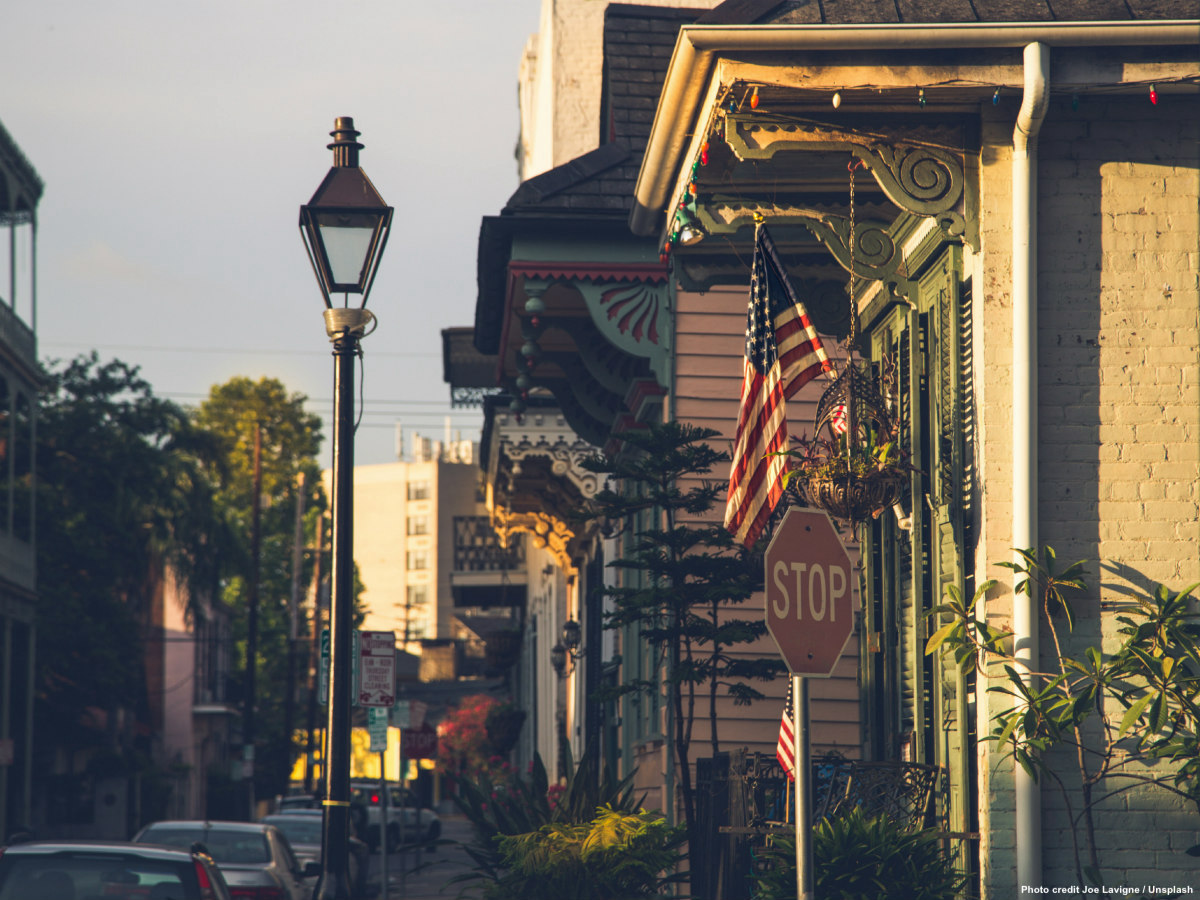Today November 9th marks the 30th anniversary of the fall of the Berlin Wall. However, 30 years after the Communist regime’s demise, Eastern European cities still need to weave that invisible network of trust that makes them more democratic. Communist regimes used to persistently stimulate mutual distrust among the general public with their pervasive intrusion into every corner of society.
You can’t see trust. You can’t touch it. But trust is a necessary condition in cities for both civil society and democracy. Since the very beginning of the transition, Budapest has to rebuild trust among all city stakeholders. In particular, community gardening play its part in this endeavour. Urban gardens undergird a network of trust in Budapest to uphold a more democratic city.
Openness bore diversity in many aspects of society creating less homogeneous cities and stressing differences between citizens. To trust was to accept risk.
Monika Kertész is a pioneer and expert of urban gardening in Budapest together with KEK, a Hungarian Contemporary Architecture Centre, whose mission is the opening of new perspectives in architectural and urban thinking in Hungary.
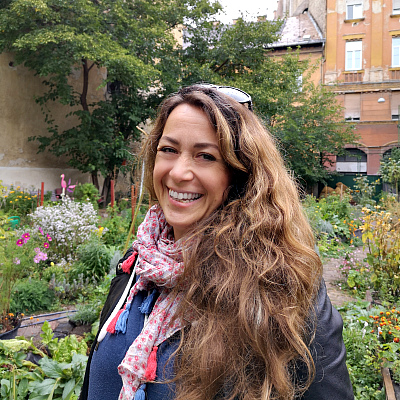
When the economic crisis hit Europe in 2009, real state development abruptly stopped. As a result, many vacant plots became suddenly available in Budapest. Moved by all these vacant spaces, Monika Kertész and her colleagues at KEK started to raise awareness in the city about the concept of urban gardening.
The first years were mostly about recruiting people on both residential and administrative levels. There was no legal precedent for renting out a plot even provisionally at reduced rates and community gardening was not a household term. Through communication we began recruiting followers of a social movement, who later became our gardeners explains Monika.
Monika led this process by transferring good policies and development practices in other Western European cities (London, Berlin, etc.) into the Budapest context. She tried to build trust and a better culture of cooperation between the public, private and civic spheres.
In September 2011, they managed to open the first urban garden called Lecsós at the Millenaris Park as part of an awareness raising community programme and in March 2012, after the winter frosts, the plots were distributed.
Since then they have created 5 community gardens in the capital providing gardening opportunities for almost 800 city residents.
The gardens are located either on public soil like the Kisdiófa Garden in cooperation with the local government of Erzsébetváros. Or they are on private owned plots such as Leonardo Kert with the support of Futureal, Kerthatár Közösségi Kert and the Csárdás Kert with the help of Magyar Telekom and the IBIS urban garden opened in a beautiful park and supported by the Hotel chain with the same name.
In those urban gardens the interaction among the different stakeholders (public and private entities and citizens) has been foremost contributing to build social trust, supportive relationships and civic participation, which societies in post-Communist cities have been drained for so long.
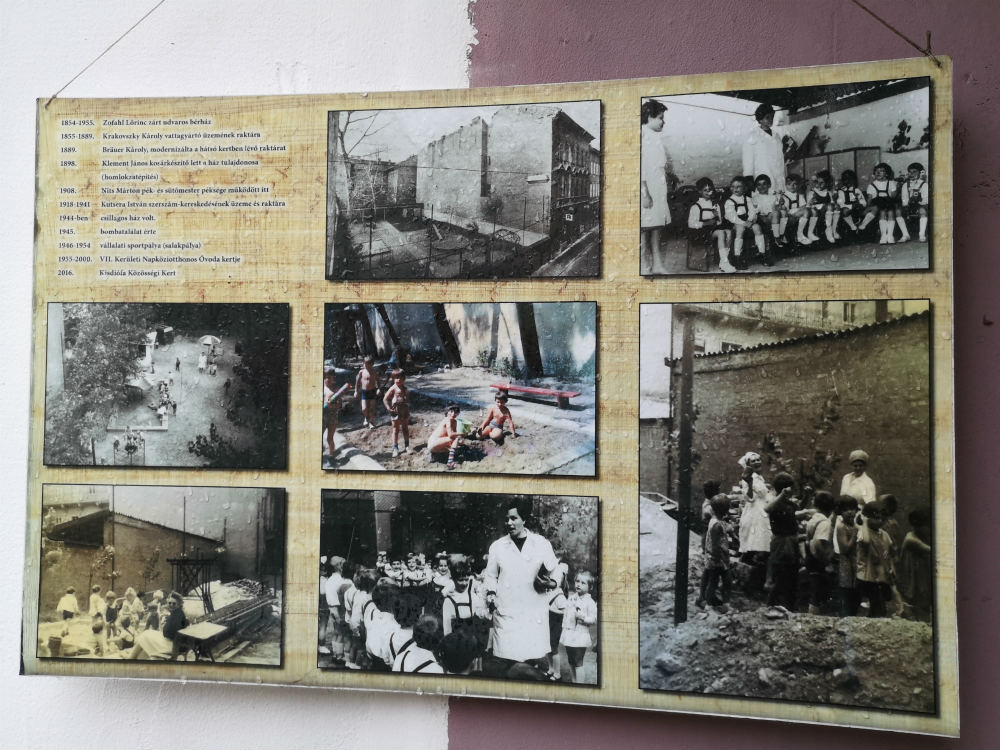
‘Direct connection with the earth and the environmental aspect of it is very important. But the key feature of the urban gardens to me is their power to create communities in Budapest’ explains Monika Kertész. ‘This small-scale probation of self-sufficiency is capable of getting people with different socio-cultural background and from different age-cohort together’.
However, the recent rise of the populist political party Fidesz in Hungary and its abuse of power with the consequence, among others, of the closure of the Central European University in the capital, have been putting that vertical trust among citizens, institution and any other stakeholders in Budapest to the test again.
The level of trust and supportive connections is very low in this city. I believe social and environmental issues are inherently interrelated, and that active local communities, like for instance in urban gardens, may bring about fundamental changes, while they learn about cooperation, solidarity and new forms of building a network of trust in Budapest, hopes Monika.
I met Monika at Kisdiófa garden. Every first Saturday of the month there is an Open Day to welcome visitors. Even the rainy weather did not stop people’s interest for the garden. Kisdiófa garden is located in the former Jewish neighbourhood of Erzsébetváros.
Erzsébetváros is one of the neighbourhoods in Europe with little green areas.
In this lively and diverse community at the heart of Budapest locals and immigrant groups are heavily mixed, with the co-existence of many different population groups in diverse housing (public and private).However, you can spot scenes of community culture at the Kisdiófa garden. It provides common areas of recreation, beds where people learn gardening and, most importantly, real soil to grow food and flowers. Citizen gardeners can exchange skills and develop an environmentally conscious lifestyle, while growing a sense of contribution to improve the environment from their local milieu.
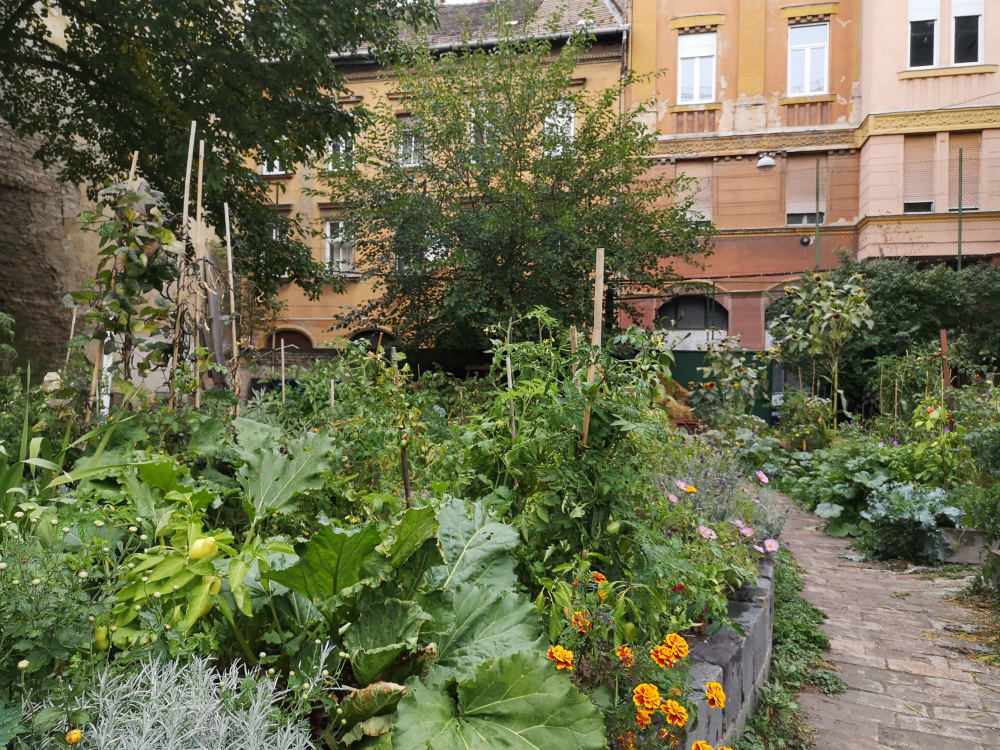
‘Attitudes at urban gardens are changing though’ notices Monika. She raises the question of what could be the future role of community gardens. She is experimenting with the idea of a much broader concept of community urban gardening as an engine of transformation of society in Budapest.
Following in Monika’s footsteps, other communities and grass roots associations of neighbours have created their own gardens. Budapest has added around 40 urban gardens so far. These urban gardens undergird that so much needed network of trust and supportive relationships among citizens in Budapest.
Right before we ended our conversation, Monika Kertész prudently whispered to me: ‘by the way my surname means gardener in Hungarian’. It couldn’t have been any other way.
